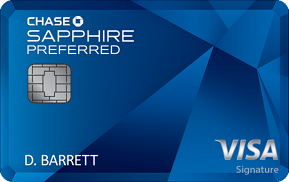 “Cut back on everything as much as possible, and don’t even think about taking a vacation!”
“Cut back on everything as much as possible, and don’t even think about taking a vacation!”
This is the advice many personal finance experts will give. You should completely deprive yourself until you are out of debt.
They want you to feel ashamed of your debt.
In reality feeling ashamed isn’t healthy and can impact your mental, physical, and emotional health. It can also prevent you from seeing the big picture.
Paying off student loan debt can be a long process. Even if you can afford the standard ten-year repayment plan, you could still be making payments for years before the debt is eliminated, even if you aggressively pay it down.
There are also those who are strategically pursuing student loan forgiveness, either through Public Service Loan Forgiveness (PSLF) (ten years) or income-driven loan forgiveness (twenty to twenty-five years).
Being ashamed of student loan debt can lead to decisions that make no sense. For example, a social worker making $40k a year with $110k in student loan debt is much better strategically pursuing PSLF. When done properly, a borrower like this could build up a solid emergency fund, Health Savings Account, and retirement account, and have their loans wiped out tax-free.
The social worker in this example would achieve the same result as if they had paid off their loans, in full, by working 80 hours a week for ten years straight. They would actually be much better off due to the savings and investments they built up, not to mention the fact that they wouldn’t be broken from 80 hour work weeks for ten years.
Even if you are working towards paying off your debt in ten years or less, borrowers should try to avoid tunnel vision with student loan debt. There are other financial goals that should take precedence:
- Credit Card Debt and Personal Loans
- Emergency Fund
- Health Savings Account (Medical Emergency Fund)
- Investing (especially any contributions matched by an employer)
A balanced approach to student loan repayment is ideal.
First, borrowers should look into whether they would benefit from going down the path of student loan forgiveness. They should also consider, at least temporarily, whether moving onto an income-driven repayment plan would benefit them by helping increase their cash flow, which can then be used to hit other financial priorities, such as paying off high-interest credit card debt and building an emergency fund.
This brings us to travel.
Travel isn’t as important as building an emergency fund or starting to invest for retirement. It’s a “want” and is thought of as a splurge in many cases.
But should you really not travel at all until your student loans are completely gone?
From what I’ve seen, the experts who recommend this are typically people who had no student loans or were able to pay them off aggressively in less than two years.
That simply won’t be the case for many borrowers.
Many people who have student loan debt are motivated to work hard in their careers. Many also have a side hustle.
For me and my wife, trips have been an escape from the daily and weekly grind. We both have demanding 9-5 jobs and we both also have side hustles. Taking time for travel, even a 3- or 4-day trip, has been important for our health. Longer trips, such as our trip to Vietnam and Thailand, have created memories we will keep with us the rest of our lives.
We didn’t want to wait until we are out of student loan debt to see the world. We don’t have kids, so it’s a good time for us to take trips (like the Southeast Asia one I mentioned) that will be more difficult if we have children. And even if we had kids we wouldn’t want them to have to wait until our student loans are gone to go on trips.
I took a similar approach to travel as I did with other things that we spend money on: I challenged myself to find ways to save money on travel.
Let’s say a trip is going to cost $3,000 after flights, hotel, ground transportation, and other costs are taken into consideration. What if I could spend $2,000? Or $1,000?
That’s exactly what we’ve been able to do.
But before we get into ways to make travel more affordable, I want to re-iterate that I think it is okay, if not beneficial, to travel when you have student loans, even if you can’t travel hack in the ways I’m about to describe.
I do not think many of the large personal finance names who make you feel ashamed of your student loan debt understand how difficult it is for borrowers to repay large amounts of student loans. Cost of living has increased disproportionately to wages, and the ratio of student loan debt to income has increased to unprecedented levels. Don’t feel ashamed for making travel a priority.
Which is our first tip for traveling with student loan debt: make travel a priority.
Make Travel a Priority
When planning on how much to spend on a wedding the most quoted piece of financial advice is to spend more on what you care about and less on what you don’t. If you don’t care about flowers, spend as little as possible on them. If you care about the drinks that will be available, spend more on that.
This same advice can be applied to your personal budget. If you care about travel, allocate more money towards travel and less towards other things. That may mean driving a car that isn’t that cool but is affordable and practical (my used Kia Spectra is certainly not cool but has been reliable and affordable). It may mean spending more time making recipes at home and bringing lunch to work. Or spending less on clothes by looking for deals and only purchasing them when you can get them cheap.
Having a dedicated travel fund can be helpful. You can open a high yield savings account at CIT Bank and make regular weekly or monthly deposits to it from your checking account (or check out some other high-yield savings account options in this post).
I don’t want to pretend like a side hustle is easy. It can be time-consuming and draining. But there’s no denying that a side hustle can be a good way to help achieve specific savings goals. If your goal is to save $300 a month that can be used towards travel, a side hustle could be a good option. A two-week trip across Europe may be just the motivation you need to make a few extra grand through a side hustle this year. I share 10+ side hustles I’ve tried and in another post I list 50+ online or at-home side hustles.
For me personally, side hustles have been helpful in hitting savings goals. But what has helped more than anything is credit card rewards, which we’ll talk about next.
How Credit Card Rewards Can Save You Thousands on Travel
Over the past five-plus years my wife and I have used credit card rewards to save thousands on flights, hotels, and other costs. For example an airline credit card typically waives checked baggage fees. For two people traveling round-trip this fee typically can be about $100. That’s $100 in savings right there on every round-trip flight.
While many travel rewards credit cards come with benefits, such as the free checked baggage perk I just described, where you can really benefit is from the sign-up bonus.
 One of my favorite credit cards is the Chase Sapphire Preferred®. When you spend $4,000 within the first 3 months of account opening, you get 60,000 Chase Ultimate Rewards® bonus points. Those points are redeemable for $750 through the Chase Ultimate Rewards® travel portal, or you can transfer 1:1 to travel partners (like United Airlines). Depending on where you are traveling, 60,000 miles can potentially cover a round-trip international flight on United Airlines.
One of my favorite credit cards is the Chase Sapphire Preferred®. When you spend $4,000 within the first 3 months of account opening, you get 60,000 Chase Ultimate Rewards® bonus points. Those points are redeemable for $750 through the Chase Ultimate Rewards® travel portal, or you can transfer 1:1 to travel partners (like United Airlines). Depending on where you are traveling, 60,000 miles can potentially cover a round-trip international flight on United Airlines.
 And this is just one card. Another card that is a solid choice for travel is the Capital One® Venture® Rewards Credit Card. This card offers 50,000 miles when you spend $3,000 on purchases within 3 months from account opening. These points translate to a $500 credit towards travel-related expenses, which I recommend using towards a hotel stay (we used ours towards a hotel stay in Aruba – highly recommend it).
And this is just one card. Another card that is a solid choice for travel is the Capital One® Venture® Rewards Credit Card. This card offers 50,000 miles when you spend $3,000 on purchases within 3 months from account opening. These points translate to a $500 credit towards travel-related expenses, which I recommend using towards a hotel stay (we used ours towards a hotel stay in Aruba – highly recommend it).
Each month I update our top travel rewards credit cards. If you aren’t taking advantage of these rewards, especially if you want to travel but have student loan debt, you are missing out on hundreds or even thousands of dollars of savings.
Don’t let student loans hold you back from traveling. A balanced approach to student loan debt is best. If you don’t feel confident about your student loan strategy, check out my book Student Loan Solution: 5 Steps to Take Control of Your Student Loans and Financial Life.


Combining a side hustle and credit card points can work great for travel. I have so accumulated so many points from affiliate marketing this way. There are many great side hustles where you would earn a decent amount of credit card points and be able to use them for travel.